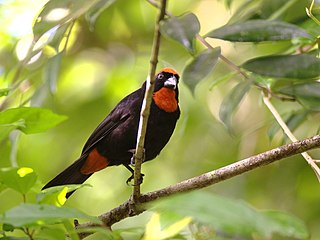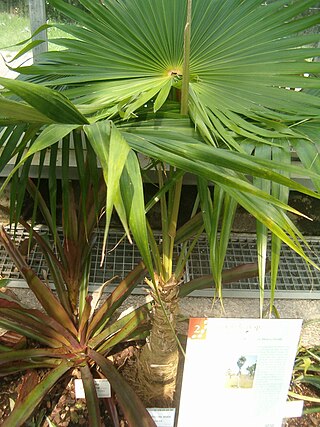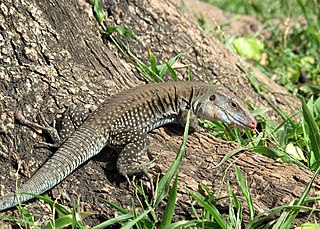
The Virgin Islands are an archipelago in the Caribbean Sea. They are geologically and biogeographically the easternmost part of the Greater Antilles, the northern islands belonging to the Puerto Rico Trench and St. Croix being a displaced part of the same geologic structure. Politically, the British Virgin Islands have been governed as the western island group of the Leeward Islands, which are the northern part of the Lesser Antilles, and form the border between the Caribbean Sea and the Atlantic Ocean. The archipelago is separated from the true Lesser Antilles by the Anegada Passage and from the main island of Puerto Rico by the Virgin Passage.

The Puerto Rican woodpecker is the only woodpecker endemic to the archipelago of Puerto Rico and is one of the five species of the genus Melanerpes that occur in the Antilles. Furthermore, it is the only resident species of the family Picidae in Puerto Rico. The species is common on the main island of Puerto Rico and rare on the island of Vieques.

The Puerto Rican owl or múcaro común, formerly known as the Puerto Rican screech owl, is a mid-sized "typical owl" in subfamily Striginae. It is endemic to the archipelago of Puerto Rico though it formerly also inhabited the Virgin Islands.

The fauna of Puerto Rico is similar to other island archipelago faunas, with high endemism, and low, skewed taxonomic diversity. Bats are the only extant native terrestrial mammals in Puerto Rico. All other terrestrial mammals in the area were introduced by humans, and include species such as cats, goats, sheep, the small Indian mongoose, and escaped monkeys. Marine mammals include dolphins, manatees, and whales. Of the 349 bird species, about 120 breed in the archipelago, and 47.5% are accidental or rare.

The Puerto Rican bullfinch is a small bullfinch tanager endemic to the archipelago of Puerto Rico. The species can be commonly found in heavy forests throughout Puerto Rico, except on the easternmost tip of the island. It consumes seeds, fruits, insects, and spiders. The nest is spherical, with an entrance on the side. Typically three light green eggs are laid.

Anolis pulchellus, the Puerto Rican anole, Puerto Rican bush anole, snake anole, or sharp-mouthed lizard, is a small species of anole lizard in the family Dactyloidae. The species is among the most common lizards in Puerto Rico, and also native to Vieques, Culebra, and the Virgin Islands.

Coccothrinax alta is a palm which is native to Puerto Rico and the Virgin Islands.
The Saint Croix racer is a possibly extinct species of snake in the family Colubridae that is endemic to the island of Saint Croix in the United States Virgin Islands.

Sabal causiarum, commonly known as the Puerto Rico palmetto or Puerto Rican hat palm, is a species of palm which is native to Hispaniola, Puerto Rico, and the British Virgin Islands. As its common and scientific names suggest, its leaves are used in the manufacture of "straw" hats.

Sphaerodactylus macrolepis, also known as the big-scaled dwarf gecko or the big-scaled least gecko, is a lizard of the Sphaerodactylus genus. It was first documented in 1859 in the US Virgin Islands, specifically, St. Croix. This diurnal species has since been spotted in other locations such as Puerto Rico with major populations in Culebra.

Chilabothrus monensis, also called commonly the Virgin Islands boa in the Virgin Islands, and the Mona Island boa elsewhere, is a species of snake in the family Boidae. The species is native to the West Indies. There are no subspecies.

The Puerto Rican crow is an extinct crow species in the family Corvidae that was endemic to Puerto Rico and the United States Virgin Islands. Little is known about its habitat, but it possibly died out after the colonization of humans on these islands.

Borikenophis portoricensis is a snake endemic to Puerto Rico and the Virgin Islands. It can grow to three feet long.
Puerto Rican racer is a common name which may refer to two species of snake native to Puerto Rico:

Spondylurus is a genus of lizards in the family Scincidae. The genus Spondylurus, vernacularly known as the Antillean four-lined skinks, is a neotropical skink taxon including many species.

The fauna of the United States Virgin Islands consists of 144 species of birds, 22 species of mammals, 302 species of fish and 7 species of amphibians. The wildlife of the U.S.V.I. includes numerous endemic species of tropical birds, fish, and land reptiles as well as sea mammals. The only endemic land mammals are six species of native bats: the greater bulldog bat, Antillean fruit-eating bat, red fruit bat, Brazilian free-tailed bat, velvety free-tailed bat and the Jamaican fruit bat. Some of the nonnative land mammals roaming the islands are the white-tailed deer, small Asian mongoose, goats, feral donkeys, rats, mice, sheep, hogs, dogs and cats.

Pholidoscelis is a genus of lizards that belongs to the family Teiidae. All species are endemic to the West Indies.

Virgin Islands – Puerto Rico Friendship Day is a public holiday celebrated in the U.S. Virgin Islands on the second Monday in October.
The Mona racer is a species of snake in the family Colubridae that is endemic to Isla de Mona in Puerto Rico.
















